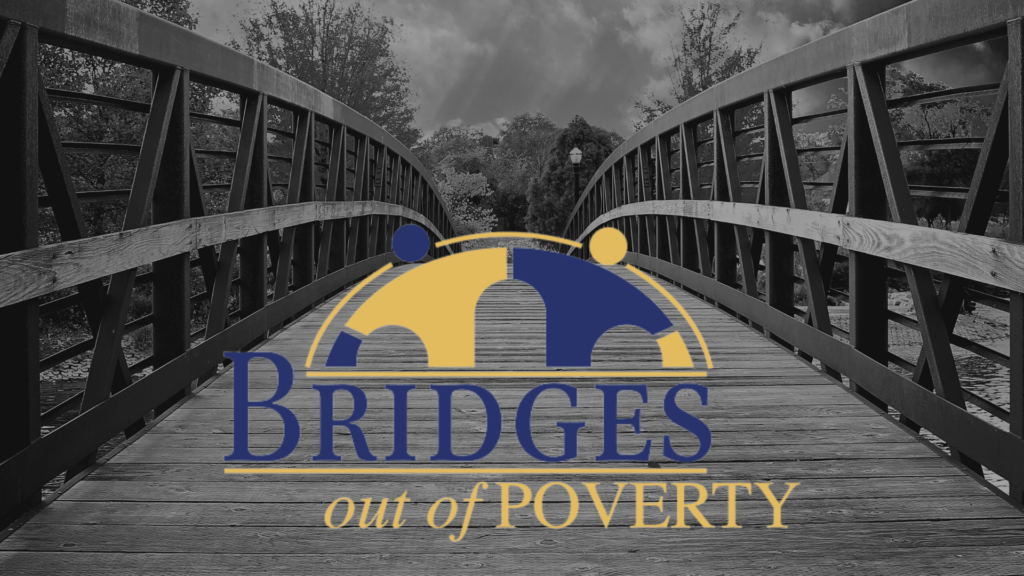
We recently invited United Way of Chatham-Kent staff, volunteers, board members and other community stakeholders to take part in a very special day of training and reflection called Bridges Out of Poverty.
The workshop, delivered by certified Bridges Trainers, looked at the impact of poverty on families, the lens and conditions through which we measure social, financial and emotional capital, and the barriers to inclusion that poverty contributes to within our community.
Poverty within Canadian families: 1 in 7 (or 4.9 million) people in Canada live in poverty 1 in 5 (or 1.3 million) children live in conditions of poverty 21 % of single mothers in Canada raise their children in poverty
Through personal stories as well as evidence-based studies and information, those who attended were able to learn about some of the less visible causes, aspects and outcomes of living in poverty. There was also discussion regarding the different kinds of poverty individuals and families can experience.
I love the real life experiences [the trainers] shared. I have always found this to be the most valuable and impactful method of teaching.
Participants then looked at ways to bring this knowledge and understanding back into the community, fostering opportunities for success when working with individuals and to strengthen relationships.
This type of trainings is so valuable but I would love to see more attendees that aren’t already working in this sector
The feedback from attendees was very positive, with more than 80% of respondents saying that the session helped raise their knowledge level, and that they were able to now identify practices for improving outcomes for people experiencing poverty.
One “aha” moment that I had during the presentation was understanding the hidden rules of poverty in the sense of food and community. I did not understand before this presentation the importance of friends and family to people living in poverty. This shed light on how people who are in the middle class and or wealthier classes take human networks for granted.
To further the conversation, those that attended were encouraged to bring their training back to their organizations and into the Chatham-Kent as a community. But one of the most important takeaways of the day was to realize that conditions of poverty may not look the same across the board, and that means there is not a one-size-fits-all solution, either.
Faith Hale, Executive Director of Ska:Na Family Learning Centre and an attendee of the workshop leaves us with a reminder to be aware that poverty and prosperity do not look the same in every community: “Wealth to us can be measured in the number of gardens you have.”
Circumstances that may contribute to poverty: Money: Lack of money is an obvious factor but not the only one. Language: Not having knowledge of the spoken language or appropriate use of language can be a barrier. Relationships: Close, trustworthy relationships to people who act appropriately are crucial. Mental or Cognitive Impairment: Unsupported mental health and addiction can make it difficult to deal with daily life.
If you would like to implement the Bridges Out of Poverty training for your group or organization, contact CirclesCanada.com

